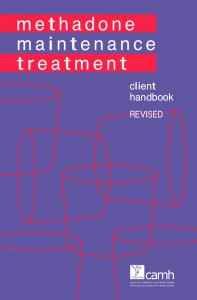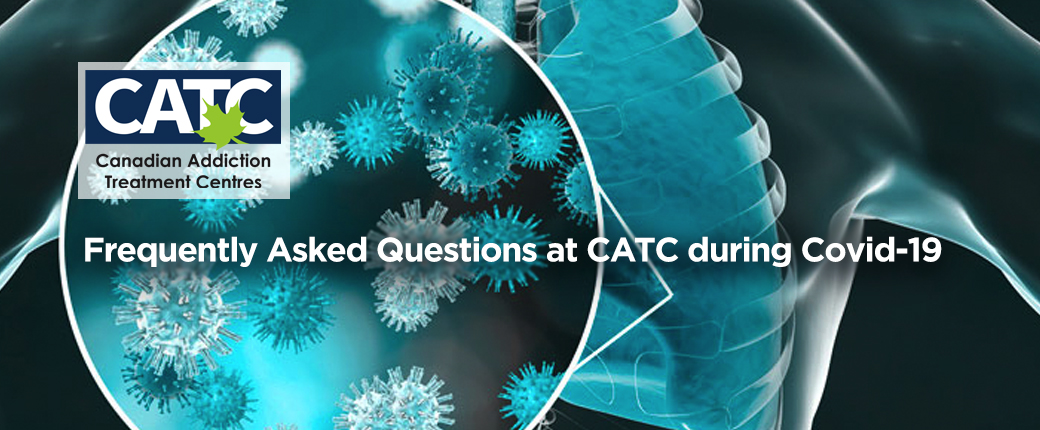Methadone Treatment
What is OATC’s Methadone Maintenance Program?
The program is based on an Outpatient Harm Reduction Model, and includes the following:
- An initial intake interview
- Medical examination and laboratory tests, where appropriate
- Supervised urine testing
- A signed treatment contract and treatment plan
- Regular medical follow up
- Daily methadone dose
OATC utilizes a multidisciplinary treatment team approach including:
- Addiction Physicians
- Registered Nurses
- Registered Practical Nurses
- Pharmacists
- Other Allied Health Professionals
What is methadone?
Methadone is a long-acting opioid medication (lasting 24-36 hours per dose).
It’s an effective and legal substitute for heroin or other narcotics (such as heroin, methadone, Oxycontin, opium, Percocet, Percodan, morphine, codeine, etc.)
Methadone has been used in treatment programs since the 1960’s. It helps to stabilize the lives of people who are dependent on opiates and reduce the harm related to drug use.
It also helps them return to a stable social, economic and home environment.
How does methadone work?
The Methadone program is not a “quick fix”. Methadone is part of a long-term and comprehensive maintenance program for opiate dependent clients.
The immediate goal is to stabilize you on your methadone dose, promote a sense of well-being and prevent physical withdrawal symptoms. Methadone will significantly decrease your drug cravings, and help you eliminate drug use.
Methadone maintenance treatment works best when combined with other services and interventions. As part of OATC, you will be able to freely access addiction counselling, crisis intervention and management, as well as various medical services.
Methadone works by its effect on opiate receptors in the body. To allow it to work properly, you are best advised to abstain from the use of all other opiates. In the case that you choose to use other opiates with methadone, the effect of methadone will diminish. You will also fail to obtain the effect which you have been accustomed to after taking opiates (e.g., less or no euphoria), and you may put yourself in higher risk for overdose.
Remember, the goal of Methadone treatment is to stabilize your body physically so that you can make the desired changes in your life, and make the best of your new “drug-free” lifestyle.
How is methadone taken?
Methadone is taken orally and is diluted with orange juice. When you first start the program, you will be asked to drink your medication at the pharmacy daily.
As you stabilize your dose, and your treatment program, you may be eligible for some “carries”, or take home doses.
Carries should be refrigerated. It is your responsibility to store them safely to make sure the medication is not taken by anyone else, especially a child, or a non-opiate dependent person, for whom it may be lethal.
How long do I have to stay on methadone, and how do I taper off methadone?
There is no exact length of time that a person has to remain on methadone. Rather, this is highly variable for each patient. However, some key factors seem to be helpful in predicting successful methadone tapering, and maintaining a drug-free lifestyle. These include:
- Successful stabilization, opiate abstinence, and maintenance on the methadone program for at least one to two years.
- Lifestyle modification/changes, such as a stable family life, steady employment, fewer financial and legal difficulties, and social support from non drug-using partner, family and friends.
Once these have been reached, the decision to taper off methadone is made by the patient, with support of the treating physician. The methadone dose is then typically tapered by approximately 10% of the daily dose, at weekly or biweekly intervals. This is only a guide, and many other tapering schedules are available and may be used upon mutual decision with your treating physician.
It is important to understand that when methadone is taken as prescribed, and in conjunction with a comprehensive treatment program, it is a safe and effective medication that patients can take for many years to both achieve and maintain a drug-free lifestyle.
Does methadone have any side effects?
Most people experience few, if any, side effects. Once your dose is stabilized, methadone is usually a very well-tolerated medication.
A few of the most common side effects and solutions are:
- Constipation: you can try increasing fibre, fluid intake and regular exercise.
- Sweating: this can be due to a methadone dose that is too high or too low.
- Sleepiness or drowsiness: may be due to too much methadone, and should be assessed by your doctor. If this is a problem, please do not drive until the symptoms are resolved.
- Weight change: some people will put on weight, but this is usually because they are eating properly and are healthier.
How do I access the program?
Please contact the OATC Clinic nearest you, or call OATC Head Office at 905-773-3884 to get further information.
Please call Monday through Friday (9:00 a.m. – 5:00 p.m., EST) and identify yourself as a patient who is interested in OATC’s Methadone maintenance program.
Your family physician, psychiatrist, clinical psychologist, addiction counselor, other allied health professional, or employer may also call on your behalf for further information.
How is the program paid for?
All services are covered by the Ontario Health Insurance Program (OHIP).
Additional nominal fees may be applicable for non-OHIP covered services. Non-OHIP services may be covered in part, or in full, by your workplace extended health benefits plan, or other private insurance health care plans.
The cost of Methadone is covered by the Ontario Drug Benefit Program for those patients who are covered by the plan (i.e., Family Benefits, Welfare Assistance, Disability, etc.)
Why should I start the Methadone Maintenance Program?
If any of the following benefits are desirable to you, or are part of your future goals, then you should give this program your attention and consideration:
- A drug-free lifestyle
- A stable personal, social, family and financial life
- No physical withdrawal symptoms
- Decreased or eliminated drug cravings
- Resolution of legal concerns
- A chance to obtain or complete an education
- A chance at stable employment
- Improved self-esteem, self-worth & independence
- Improved memory, concentration, attention & thinking
- Improved health and the prevention of drug related health problems (e.g., HIV, Hepatitis, Liver disease, etc.)
- Improved overall quality of life
- A chance to regain respect, trust and relationships with your spouse, children, family members, friends and associates
Remember, you are the one making the changes. We are here to support you in whatever way you feel will help improve the quality of your life.









